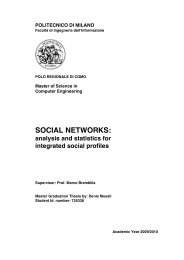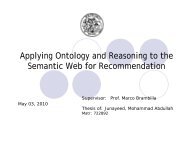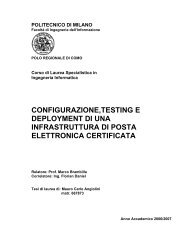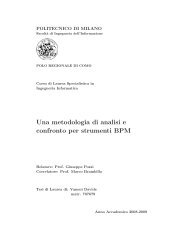Thesis full text (PDF) - Politecnico di Milano
Thesis full text (PDF) - Politecnico di Milano
Thesis full text (PDF) - Politecnico di Milano
You also want an ePaper? Increase the reach of your titles
YUMPU automatically turns print PDFs into web optimized ePapers that Google loves.
the development complexity is increased, and the usability of the tools is reduced. Finally, only<br />
the KB framework supports deduction and update of the knowledge with de<strong>di</strong>cated components<br />
and design patterns.<br />
The last table category summarizes the architectural aspects of the tools. All the tools have<br />
methodological support, but except the KB framework, they are <strong>di</strong>fficult to extend mainly<br />
because they base on two-tier architecture. The KB framework is open to extensibility by means<br />
of custom units. Extensions may occur either at the framework logic level provi<strong>di</strong>ng a new<br />
functionality upon the existing inference system, at the business logic level giving access to the<br />
knowledge base, or at both.<br />
In Table 6.2 a second comparison is made upon the expressive power of knowledge<br />
representation languages (OWL and the language underlying the KB Framework). Both<br />
languages are mapped to formalisms from the Description Logics family. Such comparison<br />
focuses on the main features of each language in knowledge modeling in order to highlight their<br />
<strong>di</strong>fferences and their limitations. All of them support the notion of class and class hierarchy;<br />
although the KB Framework Language does not support exhaustive decomposition and<br />
partitioning, due to implementation problems encountered using Pellet. In fact, UML considers<br />
completeness upon generalization sets; therefore, we plan to resolve this limitation in future<br />
releases. Similar is the support of property hierarchies in the languages. Derived support<br />
in<strong>di</strong>cates that the language does not provide a construct for the feature in question, but it supports<br />
it through a combination of other constructs. Attributes that characterize the class are covered<br />
through workarounds: both in OWL and in the KB Framework Language, class attributes are<br />
defined once in the class definition for all the instances of the class. Finally, enumeration of<br />
classes is not yet supported in KB Framework Language, although it is provided in UML. We<br />
plan to extend the implementation to cover this aspect too.<br />
90


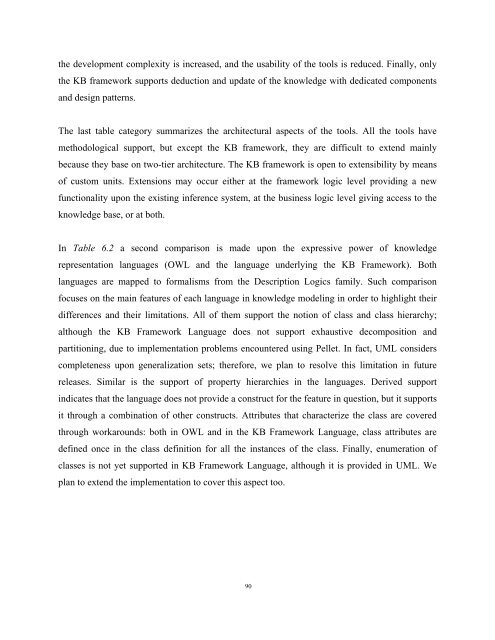
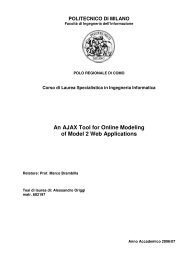
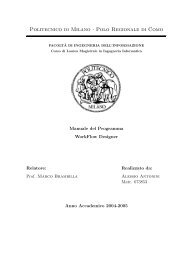
![Full text preview of the chapter [PDF] - Politecnico di Milano](https://img.yumpu.com/44021924/1/180x260/full-text-preview-of-the-chapter-pdf-politecnico-di-milano.jpg?quality=85)
